Details
-
Bug
-
Status: Closed (View Workflow)
-
Critical
-
Resolution: Fixed
-
10.6, 10.7(EOL)
Description
Users can configure the number of purge threads to use.
Currently, the existing logic looks at the increasing history length and accordingly increases the purge threads (respecting the user-set threshold). User active user workload causes history length to increase that, in turn, leads to more purge threads to get scheduled.
Purge operation generates redo-records in addition to user workload redo-records. This dual redo generations cause intense pressure on redo-log which can easily cause redo-log to hit the threshold and there-by-causing jitter in overall throughput (including furious flushing).
In order to improve the user workload performance and it is important to ensure background activity like a purge is not overdone while ensuring history length is kept in check to avoid an increase in select latency.
The proposed patch explores an adaptive purge thread scheduling approach based on the redo log fill factor. Logic tends to dynamically increase or decrease the purge threads based on how much redo log is filled, leaving enough space/resources/flush bandwidth for the user workload.
Testing done so far has revealed quite encouraging results especially with slower disk where-in flush is unable to catch up with redo log generation rate. Increasing in history length doesn't tend to have a regressing effect on the queries.
Attachments
Issue Links
- is blocked by
-
MDEV-26626 InnoDB fails to advance the log checkpoint
-
- Closed
-
- relates to
-
MDEV-21751 innodb_fast_shutdown=0 can be unnecessarily slow
-
- Closed
-
-
MDEV-26520 Make innodb_purge_threads settable without server restart
-
- Closed
-
-
MDEV-32050 UNDO logs still growing for write-intensive workloads
-
- Closed
-
-
MDEV-16260 Scale the purge effort according to the workload
-
- Open
-
-
MDEV-24258 Merge dict_sys.mutex into dict_sys.latch
-
- Closed
-
-
MDEV-32050 UNDO logs still growing for write-intensive workloads
-
- Closed
-
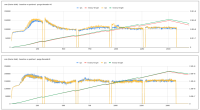
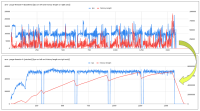
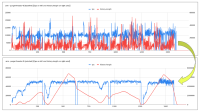
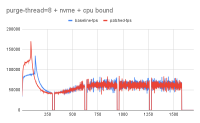
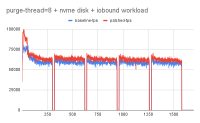
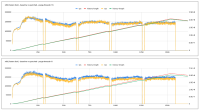
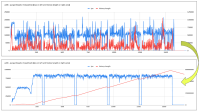
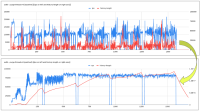
PR created: https://github.com/MariaDB/server/pull/1889